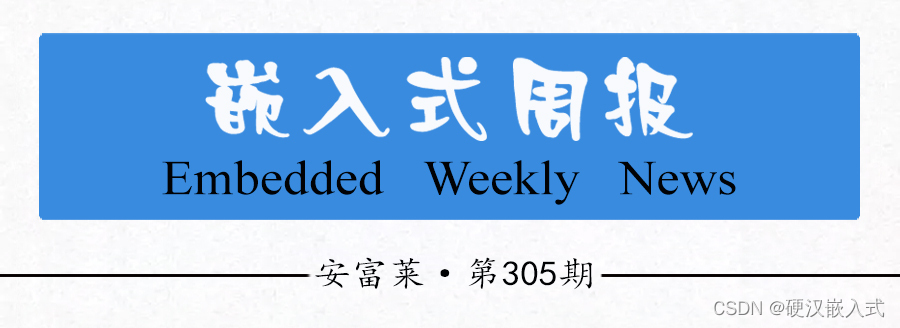设计一个在线教育知识付费源码系统(面向对象设计)。
解决方案:假设我们想要设计一个基本的内容付费阅读系统并带小程序,提供以下功能:
•查找知识数据库并阅读付费内容;
•用户成员的创建和扩展;
•基于用户分级权限管理,并且这个用户只能获权后阅读。
仓库完整源码:zs.xcxyms.top
类OnlineReaderSystem代表程序的主体。我们可以实现这个类,让它存储有关所有涉及用户管理的权限分级的信息,并刷新显示,但这会使这个类变得相当庞大。相反,我们选择将这些组件拆分成Library、userManager和Display类。
类:
1、用户
2、知识
3、UserManager
4、OnlineReaderSystem

代码如下:
import java.util.HashMap; /* * This class represents the system */ class OnlineReaderSystem { private Library library; private UserManager userManager; private Display display; private book activeBook; private User activeUser; public OnlineReaderSystem() { userManager = new UserManager(); library = new Library(); display = new Display(); } public Library getLibrary() { return library; } public UserManager getUserManager() { return userManager; } public Display getDisplay() { return display; } public Book getActiveBook() { return activeBook; } public void setActiveBook(Book book) { activeBook = book; display.displayBook(book); } public User getActiveUser() { return activeUser; } public void setActiveUser(User user) { activeUser = user; display.displayUser(user); } } /* * We then implement separate classes to handle the user * manager, the library, and the display components */ /* * This class represents the Library which is responsible * for storing and searching the books. */ class Library { private HashMap<Integer, Book> books; public Library() { books = new HashMap<Integer, Book>(); } public Boolean addBook(int id, String details, String title) { if (books.containsKey(id)) { return false; } Book book = new Book(id, details, title); books.put(id, book); return true; } public Boolean addBook(Book book) { if (books.containsKey(book.getId())) { return false; } books.put(book.getId(), book); return true; } public boolean remove(Book b) { return remove(b.getId()); } public boolean remove(int id) { if (!books.containsKey(id)) { return false; } books.remove(id); return true; } public Book find(int id) { return books.get(id); } } /* * This class represents the UserManager which is responsible * for managing the users, their membership etc. */ class UserManager { private HashMap<Integer, User> users; public UserManager() { users = new HashMap<Integer, User>(); } public Boolean addUser(int id, String details, String name) { if (users.containsKey(id)) { return false; } User user = new User(id, details, name); users.put(id, user); return true; } public Boolean addUser(User user) { if (users.containsKey(user.getId())) { return false; } users.put(user.getId(), user); return true; } public boolean remove(User u) { return remove(u.getId()); } public boolean remove(int id) { if (users.containsKey(id)) { return false; } users.remove(id); return true; } public User find(int id) { return users.get(id); } } /* * This class represents the Display, which is responsible * for displaying the book, it's pages and contents. It also * shows the current user. * It provides the method * turnPageForward, turnPageBackward, refreshPage etc. */ class Display { private Book activeBook; private User activeUser; private int pageNumber = 0; public void displayUser(User user) { activeUser = user; refreshUsername(); } public void displayBook(Book book) { pageNumber = 0; activeBook = book; refreshTitle(); refreshDetails(); refreshPage(); } public void turnPageForward() { pageNumber++; System.out.println("Turning forward to page no " + pageNumber + " of book having title " + activeBook.getTitle()); refreshPage(); } public void turnPageBackward() { pageNumber--; System.out.println("Turning backward to page no " + pageNumber + " of book having title " + activeBook.getTitle()); refreshPage(); } public void refreshUsername() { /* updates username display */ System.out.println("User name " + activeUser.getName() + " is refreshed"); } public void refreshTitle() { /* updates title display */ System.out.println("Title of the book " + activeBook.getTitle() + " refreshed"); } public void refreshDetails() { /* updates details display */ System.out.println("Details of the book " + activeBook.getTitle() + " refreshed"); } public void refreshPage() { /* updated page display */ System.out.println("Page no " + pageNumber + " refreshed"); } } /* * The classes for User and Book simply hold data and * provide little functionality. * This class represents the Book which is a simple POJO */ class Book { private int bookId; private String details; private String title; public Book(int id, String details, String title) { bookId = id; this.details = details; this.title = title; } public int getId() { return bookId; } public void setId(int id) { bookId = id; } public String getDetails() { return details; } public void setDetails(String details) { this.details = details; } public String getTitle() { return title; } public void setTitle(String title) { this.title = title; } } /* * This class represents the User which is a simple POJO */ class User { private int userId; private String name; private String details; public void renewMembership() { } public User(int id, String details, String name) { this.userId = id; this.details = details; this.name = name; } public int getId() { return userId; } public void setId(int id) { userId = id; } public String getDetails() { return details; } public void setDetails(String details) { this.details = details; } public String getName() { return name; } public void setName(String name) { this.name = name; } } // This class is used to test the Application public class AppTest { public static void main(String[] args) { OnlineReaderSystem onlineReaderSystem = new OnlineReaderSystem(); Book dsBook = new Book(1, "It contains Data Structures", "Ds"); Book algoBook = new Book(2, "It contains Algorithms", "Algo"); onlineReaderSystem.getLibrary().addBook(dsBook); onlineReaderSystem.getLibrary().addBook(algoBook); User user1 = new User(1, " ", "Ram"); User user2 = new User(2, " ", "Gopal"); onlineReaderSystem.getUserManager().addUser(user1); onlineReaderSystem.getUserManager().addUser(user2); onlineReaderSystem.setActiveBook(algoBook); onlineReaderSystem.setActiveUser(user1); onlineReaderSystem.getDisplay().turnPageForward(); onlineReaderSystem.getDisplay().turnPageForward(); onlineReaderSystem.getDisplay().turnPageBackward(); } }知识付费源码系统类图:聚合和多重性是设计类图时需要考虑的两个重要问题。让我们来详细了解一下。

聚合,
聚合只是表示一种关系,其中一件事可以独立于其他事存在。它意味着在定义类时创建或组合不同的抽象。聚合表示为类图中关系的一部分。在下面的图中,我们可以看到聚合是由一个指向超类的菱形末端的边表示的。“图书管理系统”是由各种类组成的超类。
这些类是User、Book和Librarian。此外,对于“Account”类,“User”是一个超类。所有这些,共享一种关系,这些关系被称为聚合关系。
多重性,
多重性意味着一个类的元素数量与另一个类相关联。这些关系可以是一对一、多对多、多对一或一对多。用来表示我们使用的一个元素1,表示我们使用的零元素0,以及我们使用的许多元素*. 我们可以从图表中看到;许多用户与表示的许多书相关联*这表示多对多类型的关系。一个用户只有一个用1表示的帐户,这表示a一对一的类型的关系。
知识付费系统类图简单地描述了知识管理系统类的结构、属性、方法或操作、对象之间的关系。
- 海报
 456主机测评
456主机测评











